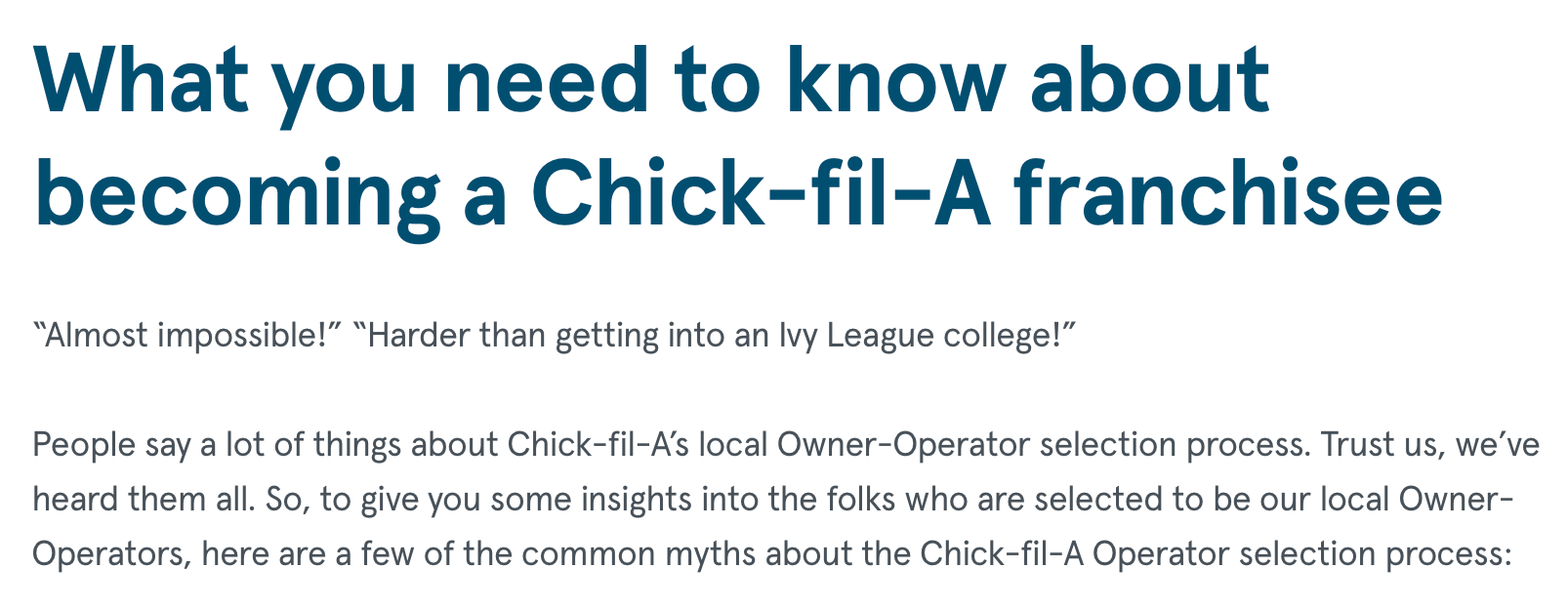- Dollar Debrief
- Posts
- How do franchises work?
How do franchises work?
Add your kids to the Chick-fil-A waitlist.
Tropical Storm Jerry (the active Atlantic storm) is not a good hurricane name. I just can't imagine filling out an insurance claim and writing Hurricane Jerry. I bet it was supposed to be Jerome, but because Jerome Powell is already the target of Trump’s tweets, they tried to give him a break.
How do franchises work?
A franchise business model essentially out-sources expansion to motivated individuals who want to run a business with a little less risk. A franchisee takes an already established name and brand to new locations.
The franchisor provides a wide variety of support including training, resources, advertising, market research, and a proven brand. All of this comes at a significant cost to the franchisee. Franchisees sacrifice a percentage of revenue to buy down the risk of opening a new store/brand/concept.
This has been a widely successful business model for dozens of companies in various industries. Let’s look at a few!
McDonald's
The golden arches are synonymous with franchising success. McDonald's charges a $45,000 franchise fee with total investment ranging from $1-$2.2 million with 25-40% in down payment. They require a minimum of $1 million in non-borrowed personal resources just to be considered.
McDonald's takes 4-5% of monthly gross sales in royalty fees, monthly rent, and a $45,000 20-year license fee . The barrier to entry is high, but the brand recognition is unmatched. With over 40,000 locations worldwide, McDonald's has perfected the franchise playbook.
Chick-fil-A
If you think getting into Harvard is hard, try becoming a Chick-fil-A franchisee. With an acceptance rate of less than 1%, it's statistically harder to get a Chick-fil-A franchise than admission to Harvard. A point that Chick-fil-A has tacitly acknowledged:

The don’t deny it though…
Here's the kicker: the initial franchise fee is only $10,000. Why so low? Because Chick-fil-A covers all costs related to building and equipping the restaurant. The catch? They take 50% of your pre-tax profit, plus around 3.25% of gross sales for local marketing.
You also don't really "own" the business in the traditional sense - you're more of a highly-paid operator. And yes, you must stay closed on Sundays. The company maintains tight control, but franchisees who make it through the gauntlet can earn substantial income from one of America's most beloved fast-food chains.
Dunkin'
America runs on Dunkin', and apparently on franchise fees too. The initial franchise fee ranges from $40,000-$90,000 depending on the type of location. Total investment runs between $500k to $1.8 million.
Dunkin' charges a 5.9% ongoing royalty fee plus 5% of gross sales for advertising. They've been aggressively expanding beyond the Northeast, making it easier to find available territories than some other major franchises.
Hampton Inn (Hilton)
Moving beyond food, Hampton Inn represents the hotel franchise model. The initial franchise fee is $100,000 for the application and a total investment for a new hotel ranges from $11 million to $20 million (not including the real estate) - significantly higher than restaurant franchises.
Hilton charges 10% of gross room revenue for royalties and program fees; however, this doesn’t include literally dozens of additional fees for things like “Connected Room Maintenance Fees” and “Hilton Honors Traveler Fee”. The barrier to entry is massive, but hotels offer different economics with longer guest stays and higher transaction values.
Ace Hardware
Not only is Ace the superior hardware store compared to Lowes and Home Depot, they are also the most empowering franchise model. They require $350,000 in liquid capital for prospective owners with total investment between $650,000 and $1.5 million depending on store size and location. They have NO royalty or franchise fees.
What makes Ace unique is their co-op structure. Store owners are shareholders in the company, giving them more say in operations. ACE headquarters purchases products in bulk and sells it to store owners for a small mark up. The quantity purchased by ACE lowers the cost. Profits are then distributed back to store owners as a dividend.
The Bottom Line
Franchising isn't a guaranteed path to riches. You're trading independence for brand recognition and support. The initial investment is just the beginning - ongoing royalties, marketing fees, and operational costs add up quickly.
But for those who succeed, franchising offers a proven business model with built-in customer recognition. Just remember: that $10,000 Chick-fil-A fee might look appealing, but they're taking half your profits. McDonald's wants $1 million liquid before they'll even talk to you. And opening a Hampton Inn requires millions in capital.
Do your homework, understand the true costs, and remember that franchise agreements heavily favor the franchisor. You're buying a system, not just a business.
Debrief on Deck
Next week, we will talk about a non-franchise store, Buc-ee’s. This store is more than a gas station. It is a restaurant, clothing store, dog park, and (most importantly) a royal thrown for road trip bathroom breaks. If you haven’t been, it’s a worthy reason to fly to Texas.
As always, please reach out to us with any questions or comments you have. You can reply directly to this email or find us on Instagram.
Until then, stay the course.
Wilson